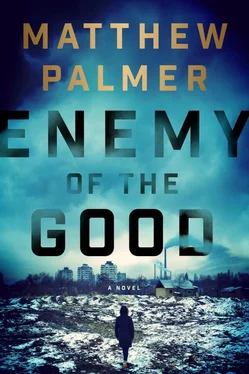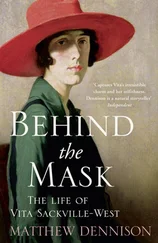Heavy ceramic plates of dumplings were passed around the table by the guests— samsa made of mutton and fat and steamed manty filled with ground beef and onions. There were wooden platters piled high with flatbread, and big bowls of lagman , thick noodles in a fiery vinegar sauce, sat in the middle of the table.
The men drank kumys and vodka and bozo , a yeasty and mildly alcoholic brew made from wheat.
The conversation was boisterous and loud and entirely apolitical. The men teased one another about the state of their fields, the quality of their flocks, and their chances in the games at the next horse festival. It was all in good fun, but there was an undercurrent of melancholy to the evening as well. The men gathered in Tashtanbek’s garden were mostly older. Their sons and grandsons were working abroad. There were a few younger men, but many of them were sick or injured in some way. One twenty-year-old—Ruslan’s first cousin—had lost his left arm at the elbow after an accident in the oil fields of Kazakhstan. An uncle had returned from the coal mines in Belarus with wasting lung disease. He sat at the far end of the table looking gaunt and hollow, picking disinterestedly at his food and coughing into the sleeve of his jacket.
Some hours later, when the guests had eaten their fill and then some, Tashtanbek stood and commanded attention.
“Thank you all for coming this evening to welcome my grandson home. It is my hope that he will soon tire of the city life and return to his people here in Kara-Say with a bride that he has taken in the Kyrgyz fashion.”
The men gathered around the tables cheered drunkenly.
“Until that day, and to ensure that he does not forget where he came from, I would ask you, Almaz, to sing for us.”
Almaz Beshimov, Ruslan knew, was not only the best Manaschi in Kara-Say, he had a national reputation as one of the most skilled and artistic reciters of the Manas epic in the country. He was somewhere in his eighties but still vital, and he took inordinate pride in his bushy white mustache that curled up at the ends.
A chair had been set up between the tables where all the guests would have an unobstructed view. Almaz had come dressed in his Manaschi best, a jelek of dark blue velvet, an elaborately embroidered kalpak , and a studded belt buckle that looked to be made of at least two kilos of bronze.
His voice was still clear and powerful and he launched straight into the recitation, a rhythmic and repetitive chant that was familiar to all the guests. He began with the traditional opening that all Manaschi used—“it was a long time ago, and now the eyewitnesses have gone”—before launching into his chosen passage.
Within two stanzas, Ruslan recognized the passage Almaz was singing. The octogenarian Manaschi had chosen a section from the third book of the epic poem, the story of the grandson Seitek. This was the passage in which Seitek, who had been raised in the enemy’s camp unaware of his own lineage, learns of his secret origin and chooses to rise up against the foes of his father and grandfather.
This was not a random selection. Ruslan knew that his grandfather has asked Almaz for this passage. He had come to Kara-Say to ask Tashtanbek for a difficult thing, to deliberately place his people in harm’s way. They had much to discuss, but it would have to wait. Now was the time to celebrate the noble history of the forty Kyrgyz tribes.
If this was a message to Ruslan from his grandfather, then the omens were good.
_____
It felt like he had been asleep for no more than fifteen minutes when Tashtanbek shook him awake. Ruslan forced his eyes open and glanced at his watch. It was four a.m. He was hungover and it hurt when he moved his head. His grandfather was dressed to ride and his expression was as affectless and impassive as always.
“Get up, boy,” he said. “Time to hunt.”
Ruslan groaned, but he did as his grandfather instructed. Someone, probably Naz, had left riding gear out for him. Ruslan fumbled in the dark with the buttons and straps. It had been more than a year since he had worn this kind of Kyrgyz clothing. The plain white kalpak was a little too small. Ruslan would have preferred an American-style ball cap, but his grandfather would be happy to see him dressed the Kyrgyz way, and he loved the old man.
Tashtanbek was waiting for him outside. He was mounted on a large black horse. The saddle and felt blanket were decorated with embroidery and yak fur. A hooded goshawk perched obediently on a leather glove he wore on his left hand. His right hand held the reins of a second horse, a roan-colored stallion that was a match for Tashtanbek’s mount in size and strength. Ruslan mounted his horse and took the reins from his grandfather. It was a cold morning, and the clean mountain air was already clearing his head. He looked forward to the hunt.
“Lead on,” he said.
Wordlessly, Tashtanbek took them down the side of the mountain and across a wooden bridge that spanned the Naryn River. In spring, the water was too high to walk the horses over the ford and too fast to swim them across. The bridge was not strong enough to carry vehicles, but it was more than adequate for horses and riders.
The sun was starting to come up and the mountains were silhouetted against the still starry sky, outlined in bands of red, orange, and violet.
A narrow, rocky path led up the hills on the far side of the Naryn. For all their bulk, the horses were remarkably surefooted on the path. After about an hour’s ride, they reached a djailoo , lush and green from the spring rains.
Tashtanbek removed the leather hood from the goshawk and spoke to the bird. He told the hawk that it was brave and fierce and loyal, that soon it would kill and feast. As he whispered to the bird, he stroked the feathers on its neck. The hawk glared at him with angry yellow eyes, offering the clan leader obedience but not affection.
Hunting with raptors was the apex of manly skill in Kyrgyz culture. It took patience and discipline and many hours of practice. It was, alas, a dying art, but Tashtanbek was one of the last great masters. He had a kestrel and a saker falcon, and as a younger man he had hunted fox and even wolves with a great golden eagle, but this goshawk was his favorite. His name was Janibar, which meant “one who has a soul.”
There was a blur of brown against the green of the djailoo . A rabbit. Tashtanbek raised his gloved hand and the goshawk took flight, trailing his leather jesses behind him. The raptor flew low across the djailoo . The rabbit spotted the hawk and elected to run rather than hide. It was not a good choice.
Janibar dipped his wings and flew in behind the rabbit, catching it by the back of the neck and lifting it effortlessly into the air. The prey twisted violently as the hawk broke its back.
As he had been trained, Janibar returned to Tashtanbek with his prize, surrendering the rabbit to his master while simultaneously shrieking his disapproval at the arrangement. With his belt knife, Tashtanbek carved off some small slices of rabbit flesh and fed them to the hawk by hand before again hooding the bird and whispering in his ear about his greatness as a hunter.
Then, and only then, did Tashtanbek turn to his grandson and speak to him for the first time since ordering him out of his warm bed.
“Tell me what it is you need,” he said.
“It’s time,” Ruslan replied. “If we don’t act now, there will not be another chance. The Sarybagysh are mobilizing to do to us what Janibar just did to that rabbit. If we do not move first, Eraliev and the GKNB will hunt us down and snap our necks.”
Ruslan did not need to elaborate. He and Tashtanbek had discussed the plan at length, and while his grandfather had reservations, he saw the opportunity to return the Adygine to a position of power and influence. Tashtanbek was not motivated by abstractions like freedom and democracy. But clan loyalty was something settled deep in his bones. Like most traditional leaders, however, he was cautious by nature.
Читать дальше












